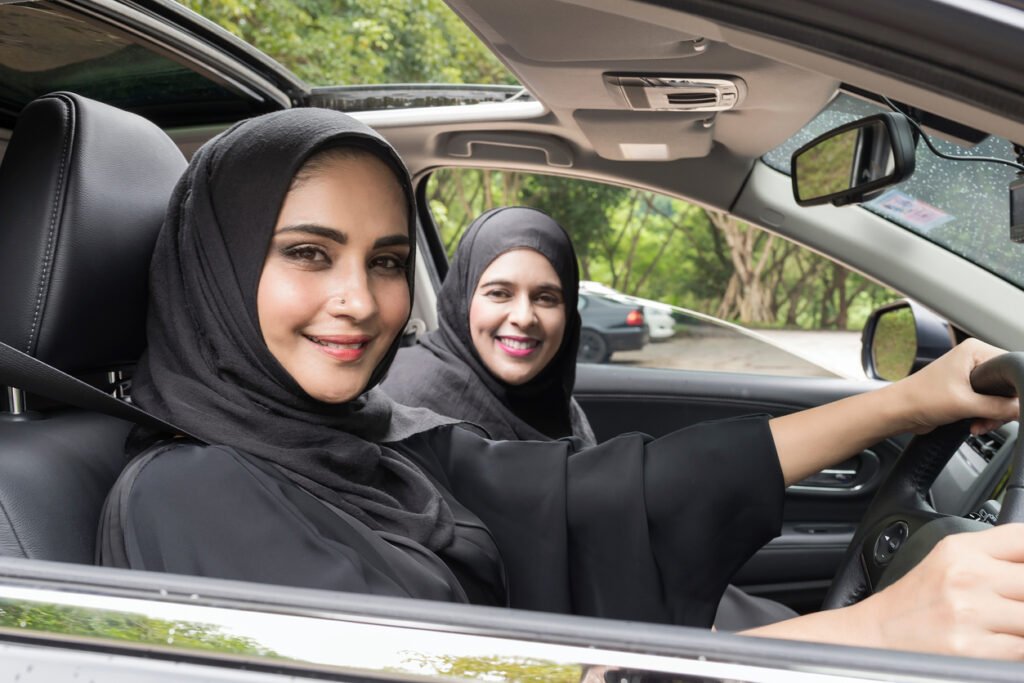Everything you need to know as an expat woman in Saudi Arabia!

Living in Saudi Arabia can present unique challenges for women due to the strict Islamic regulations governing the country. Historically, Saudi Arabia has imposed numerous restrictions on its citizens, particularly women. However, with the leadership of Crown Prince Mohammed bin Salman Al Saud, the nation has embarked on a path of modernization and reform.
Significant strides have been made towards lifting many of the longstanding restrictions that once shaped daily life in Saudi Arabia. These changes have notably eased the lives of expatriates, particularly women, residing in the country.
The evolving landscape reflects a shift towards greater openness and inclusivity, offering expatriate women increased opportunities and freedoms within the Saudi society.
Recent changes in Saudi Arabia have brought about significant shifts in various aspects of society, particularly in the realm of women’s rights and societal norms.
Historically, Saudi Arabia has been conservative regarding women’s rights. For instance, women were granted the right to vote only in 2015, and until 2018, they were not allowed to drive. However, in a groundbreaking move, new legislation passed in 2018 permitted Saudi women to obtain driver’s licenses, marking a pivotal moment for gender equality in the country.
Moreover, there have been notable changes in social interactions between men and women in public spaces. Previously, unrelated men and women were discouraged from interacting publicly. However, since December 2019, the Ministry of Municipal and Rural Affairs has abolished the requirement for separate sections for males and families in restaurants, cashier counters, and businesses, allowing greater freedom of interaction between genders in public settings.
Another significant shift involves the role of the Mutawwa-Hai’a, also known as the Saudi Commission for the Promotion of Virtue and Prevention of Vice (CPVPV), commonly referred to as the religious police. From 1976 to 2016, the CPVPV held significant power, enforcing strict adherence to Islamic laws and societal norms. However, in 2016, the powers of the CPVPV were significantly curtailed, limiting their authority to detain or question individuals. While the CPVPV still exists, its role has diminished, requiring them to report offenses to the police for further action.
Despite these positive changes, Saudi Arabia remains a conservative society, particularly concerning women’s attire and behaviour. Public decency laws dictate that women should ensure their shoulders and knees are covered in public, though wearing an abaya (a black robe) is not legally required. However, many women still choose to wear abayas for cultural reasons and to avoid unwanted attention.
Expat women
For expat women relocating to Saudi Arabia, life within expatriate compounds offers a more relaxed environment. These gated communities provide amenities such as swimming pools, fitness centers, and convenience stores, allowing expatriates, including women, to maintain familiar lifestyles within a secure setting.
Family and marriage
Family life and marriage in Saudi Arabia are governed by Sharia law, with significant implications for women’s rights. Women typically require permission from male guardians to marry or divorce, although recent legal reforms have granted women greater rights in divorce proceedings.
Healthcare for women
In terms of healthcare, expatriate women should be aware of certain restrictions, such as the requirement for a marriage certificate to access maternity services. While contraception is available, emergency contraception may require a prescription, and abortion is strictly regulated.
Business and women
In the workplace, women’s participation in the economy has increased significantly, driven by government initiatives like Saudi Vision 2030. However, challenges remain, including a gender pay gap and cultural barriers to women’s employment in certain industries.
Overall, expat women moving to Saudi Arabia should familiarise themselves with local laws, customs, and cultural norms to navigate life effectively in the country. While recent changes reflect progress towards greater gender equality, adapting to life in Saudi Arabia may still pose challenges for women from different cultural backgrounds.






